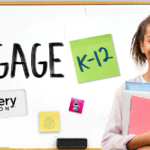This post was written by an experienced superintendent who works in small, rural district. To protect the privacy of her students, she has asked not to be identified publicly. If you would like to contact the author, please email nancy@mindprintlearning.com.
Since I work in a small district, I prefer to remain anonymous to protect my students and staff, so I will not share my name or specifics, but I NEED to share my story about my interaction with Mindprint. The only word for it is mindblowing! In fact, that was the word I used over and over during a 30 minute call when I saw my students’ Mindprint results.
Please understand I am a Black, female school administrator who has spent my entire personal and professional career addressing equity issues and working to close the achievement gap; I consider myself to be reflective and in tune with my own biases. In my present assignment I work in a predominantly white, middle income rural district, so implicit bias on my end is not something I would have thought about.
Let me step back and share the story. My district had never done gifted testing before, but we needed to comply with a state mandate. I saw Nancy (CEO of Mindprint Learning) present to a group of superintendents on using a cognitive skills assessment to support all students. I liked what I saw. I figured I could meet my mandate and, just maybe, the results could be used to actually benefit all students.
Nancy came in, met with my teachers (yes, we are in-person during the pandemic) spoke about every student being different, learning strengths and needs, how sometimes students having strengths that we can’t see, etc. etc. All good. My teachers listened. I listened. We agreed to reconvene in a few weeks after students had taken the Mindprint assessment to discuss the gifted program and how we would use the results for instruction.
Before sharing the results, Nancy asked my team to identify who they believed were their gifted students.
She wanted to make a point about how sometimes “you don’t know what you don’t know.” As I mentioned, we are a small district so we have the luxury of knowing the kids well; I often joke that I know the color of the car that each of their parents drives! If you had asked me, I would have said that our team knows so much about each and everyone of our students that we’d get it right, but I was curious.
Mindprint’s revelations, as I said in the beginning, were mindblowing! We literally hadn’t “seen” some of our most capable students and for differing reasons. Some had overlapping executive functions challenges, i.e. we couldn’t see their abilities beyond their lack of focus. Others just had what I now call a “super strength” but not all skills were strong. Others, well, I’m still trying to figure out exactly why (kids are still complicated even when you have the right data).
We had this discovery only two weeks ago. I’ve spent nights now remembering kids from throughout my educational career whom I thought I knew but maybe I didn’t. And our team is processing what we might have done, and will do, differently with our current students.
Right now I’m still in the “awareness” phase of this journey. I can’t say exactly how my school will change, but I know we will. We already have. My eyes are open.
Some of us judge based on color. Some gender. Others on the way students dress or behave and whether they come from supportive households or not. These prejudgments, or biases, might be unintentional, but they are there. To be a truly data-driven educator, we MUST be willing to use objective metrics to move from what we think might be true about a student to what we know is true. Doing so is the only way to make sure that every kid gets what he or she needs.
Yes, I need to put together a gifted program to meet a mandate and I will. But I will also see every student in my building with new eyes and target instruction based on personalized, scientific data.
The American Consortium for Equity in Education, publisher of the "Equity & Access" journal, celebrates and connects the educators, associations, community partners and industry leaders who are working to solve problems and create a more equitable environment for historically underserved pre K-12 students throughout the United States.
- American Consortium for Equity in Educationhttps://ace-ed.org/author/admin/
- American Consortium for Equity in Educationhttps://ace-ed.org/author/admin/April 23, 2025
- American Consortium for Equity in Educationhttps://ace-ed.org/author/admin/
- American Consortium for Equity in Educationhttps://ace-ed.org/author/admin/







